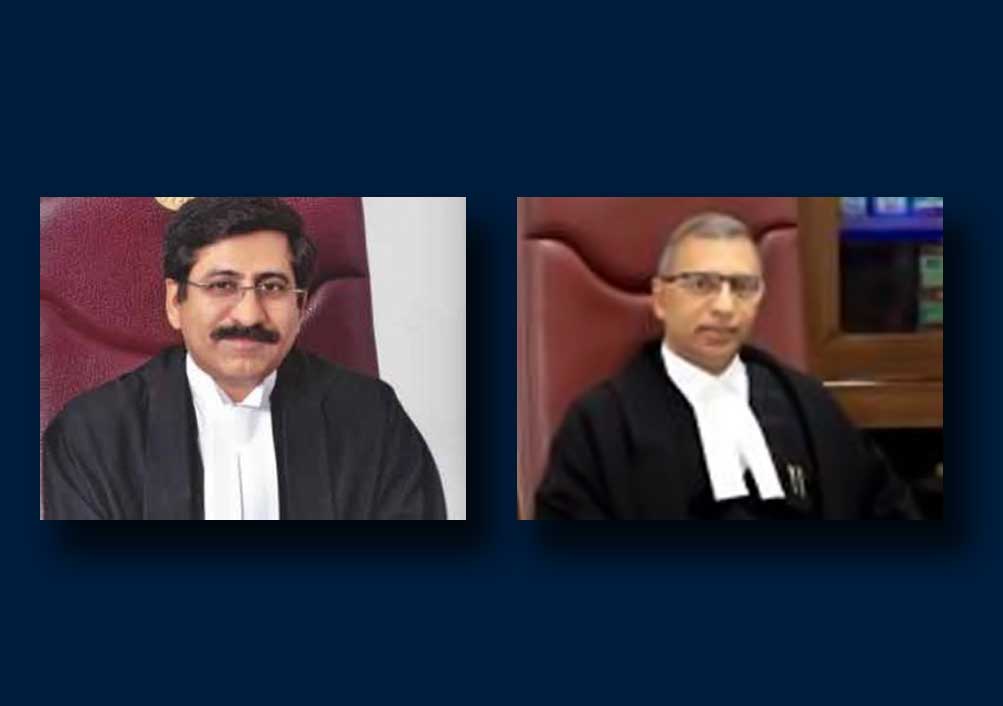In FAO(OS) (COMM) 180/2022-DEL HC- Jurisdiction u/s 34 of A&C Act is not appellate in nature and it is not open to Court to interfere with award merely because another view is possible: Delhi HC
Justices Sanjeev Sachdeva & Tushar Rao Gedela [06-01-2023]

Read Order: GENERAL MANAGER NORTHERN RAILWAY v. PIONEER PUBLICITY PVT. LTD. AND ANR
Mansimran Kaur
New Delhi, January 9, 2023: Where the Arbitral Tribunal assesses the material and evidence placed before it in detail, the court while considering the objections under Section 34 of the Arbitration & Conciliation Act, 1996 does not sit as a court of appeal and is not expected to re-appreciate the entire evidence and reassess the case of the parties, the Delhi High Court has opined.
The Division bench of Justice Sanjeev Sachdeva and Justice Tushar Rao Gedela dismissed the preset appeal by observing that there was no infirmity in the impugned award of the Arbitrator or the Judgment of the single judge rejecting the objections of the Appellant under Section 34 of the Arbitration Act.
Appellant by way of this Appeal under Section 37 of the Arbitration and Conciliation Act, 1996 impugned the Judgment whereby the Objections filed by the Appellant under section 34 of the Arbitration Act against the Interim Award were dismissed.
By way of the Commercial Circular of 2006 dated May 1, 2006 the Railway Board announced its intention to implement its scheme of awarding sole rights for commercial publicity on nominated divisions of the Railways to individual parties.
In pursuance thereof, a Notice Inviting Tender was issued by the Railways in December 2006, inviting tenders for commercial publicity in the Delhi Division of the Railways. Respondent – Pioneer Publicity Pvt. Ltd. emerged as the successful bidder. Respondents' bid was accepted by letter of acceptance. Thereafter a contract was executed awarding Respondent contract for commercial publicity with sole advertisement rights for Delhi Division. The letter of allotment was issued specifying the availability of some of the sites on specified dates.
The terms and conditions of letter of acceptance were accepted by the Respondent and as in pursuance thereto, licence fees, for the first six months of Rs 11,00,42,750, along with security deposit of Rs 2,28,85,500 was paid to the Appellant. Sole advertisement rights were given to the Respondent for a period of 5 years.
Disputes arose between the parties with regard to the total area to be provided to the contractor for advertisement purposes. The issue for determination before the Arbitrator was whether the liability of the Respondent to pay the license fee of Rs. 22.85 crores (approx.) for the first year and the enhanced license fee for the second and third year had any nexus with the Appellants obligation to provide the entire area of 213147 sq. ft. for the entire period.
The Single Judge held that the Respondent was entitled not to additional area but to refund of advance license fee deposited by it, proportionate to the advertising area not made available. It was this order that was impugned.
After considering the submissions of the parties, the Court noted that there is no gainsaying that the Arbitral Tribunal is the master of the factual arena and even if it goes wrong while deciding the factual issues, unless there is something manifest from the face of the award that is so grave as to move the conscience of the court that the error would result in a monumental miscarriage of justice, no interference by the court is called for.
“The jurisdiction under section 34 is not appellate in nature and an award passed by an Arbitral Tribunal cannot be set aside on the ground that it was erroneous. It is not open to the court to interfere with the award merely because in the opinion of the court, another view is possible”, the Bench said.
Reference made to the judgment in Jhang Cooperative Group Housing Society v. P.T Munshi Ram & Associates.
In furtherance of the same, the Court noted that the award did not suffer from any illegality leave alone a patent illegality that went to the root of the matter. The view taken by the Arbitrator was a reasonable and plausible one.
As per the Bench, the Single Judge examined the award in detail and after scrutinizing the same found the findings and reasoning to be justified and was declined to interfere in the findings arrived at by the Arbitrator. Even on examination of the material, the Court was of the view that the findings of the Arbitrator were reasonable and justified in the facts of the present case.
The Bench dismissed the appeal as there was no infirmity in the Impugned award of the Arbitrator or the Judgment of the single judge rejecting the objections of the Appellant under Section 34 of the Arbitration Act.
Sign up for our weekly newsletter to stay up to date on our product, events featured blog, special offer and all of the exciting things that take place here at Legitquest.




Add a Comment